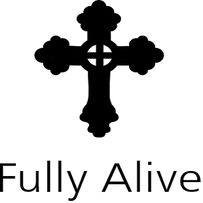Obedience Brings Us Together, Hardness of Heart Divides (Lenten Scriptural Commentary #23)3/28/2019 by John Morton
"God will protect those that are obedient to Him, but free will dictates that He releases those who choose not to be. It’s not that He doesn’t wish to protect those that are disobedient, it’s that they willfully forfeit that protection through their own actions." Fully Alive’s Lenten Scriptural Commentary helps Christians get more out of Lent by taking God’s word seriously. Mostly avoiding personal stories and anecdotes, our commentary dives deeply into the scripture readings for each day and applies them to the broader context of Lent. We use the daily Mass readings from the Catholic lectionary. If possible, read each passage slowly, taking in each word. If you find that you’ve hurried through a reading, read it over a few more times. Let the words reverberate in your heart. After you’ve let it sink in, read our Lenten Scriptural Commentary. Thursday of the Third Week of Lent In the Old Testament reading today, we see the Jewish people doing what so many in today’s modern also world do: turning away from God. Obedience is always preferred above sacrifice, but here the Jewish people choose neither. In the Gospel we see them testing Christ, rejecting Him again, or asking for more proof, as though the evidence is not enough. But Christ uses logic to reveal their bias and their false assumptions, in addition to showing them the obvious; that His miracles and the miracles of His disciples are clear signs of who he is, the Messiah, the Son of God. Readings: Jer 7:23-28 / Lk 11:14-23 Click here to read the complete text from the USCCB website But they did not listen to me, nor did they pay attention. They walked in the stubbornness of their evil hearts and turned their backs, not their faces, to me. (cf. Jer 7:24) The rejection of God by his people is the continual story of the Old Testament. They do not obey and they do not offer sacrifice. God says time and again that the sacrifices of the ceremonial law are not what the Covenant is based on, rather the Covenant is based on their obedience to His moral law. But if they don’t care about following His moral law, they will just as easily ignoring the ceremonial law. If one doesn’t recognize that one is doing something wrong, they certainly aren’t going to acknowledge that apologies or restitution must be made for their transgressions. God will protect those that are obedient to Him, but free will dictates that He releases those who choose not to be. It’s not that He doesn’t wish to protect those that are disobedient, it’s that they willfully forfeit that protection through their own actions. But if it is by the finger of God that I drive out demons, then the Kingdom of God has come upon you. When a strong man fully armed guards his palace, his possessions are safe. But when one stronger than he attacks and overcomes him, he takes away the armor on which he relied and distributes the spoils. Whoever is not with me is against me, and whoever does not gather with me scatters." (cf. LK 11:2-23) In the Gospel we see the same thing occur. Those that witness the miracle of Christ exorcising the demon from the mute man aren’t willing to recognize the truth that is on display. Rather they question whether or not this is demonic activity or not, they demand more evidence before making a conclusion. Isn’t this what we see in among so many people today? They reject God, when they hear of His miracles they assume it’s just the imagination or hallucinations of weaker minded people. Or they say, “we need more proof!” But their requirements for “proof” are often too great. They demand that God forego free will and force Himself upon them if they are to believe. They don't know what they're asking. Instead they should look at the evidence, much like in a court case, evaluating all the miracles, all the historical evidence, all of the scientific data. Rather than demanding one instance of proof, something that would remove their free will and would make the love and obedience God asks for ‘cheap’ and ‘easy,' they ought to recognize that evidence is enough to give them faith beyond a reasonable doubt. For the Church, faith, and the truth are all based in reason, in rational logic. Lent is a wonderful time to consider how we can strengthen our faith, and ponder how we can present a reasoned explanation of it. John Morton is a writer, historian, and theologian from Minnesota. He founded Fully Alive with Erik Ritland in 2017. In addition to writing articles, he is also the podcast co-host and social media content strategist.
0 Comments
Leave a Reply. |
Authors
Erik Ritland received his MA in Theology in 2017. He's the founder and content manager of Fully Alive Christian Media and Rambling On, copy editor and writer for Music in Minnesota, and an acclaimed songwriter. Archives
April 2019
Categories |

 RSS Feed
RSS Feed
